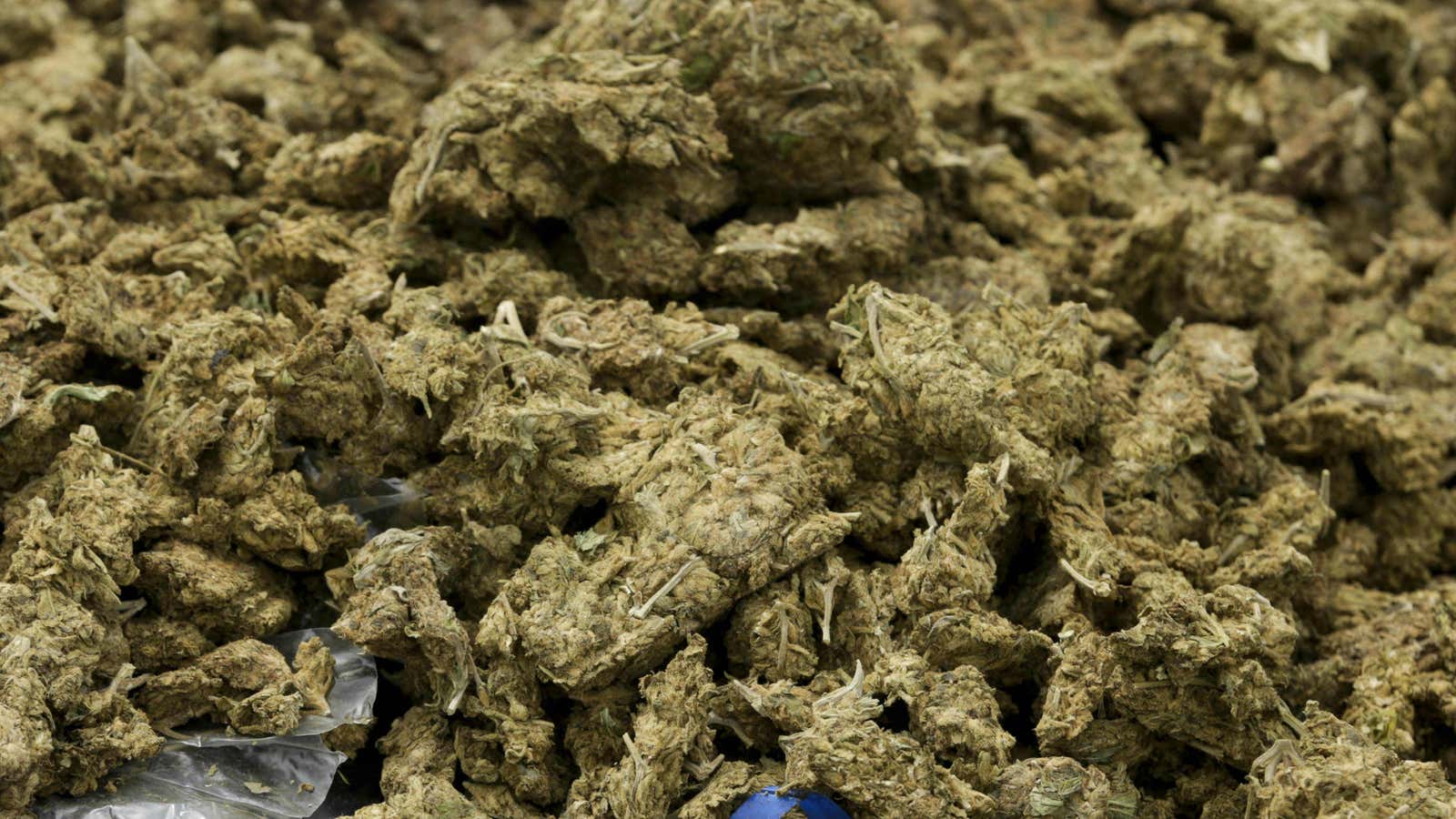Hear that? It’s the sound of teen stoners everywhere telling their parents, “I told you so.”
A new study published in Psychology of Addictive Behaviors found that smoking pot as an adolescent is not linked to problems with physical or mental health later in the users’ life, including asthma, allergies, high blood pressure, or mood disorders.
“What we found was a little surprising,” said Jordan Bechtold, the lead researcher and a psychology research fellow at the University of Pittsburgh Medical Center, in a press release.
The study used data collected through the Pittsburgh Youth Study,which examined the relationship between antisocial and delinquent behaviors and risk factors like alcohol and drug use among boys in Pittsburgh public schools. It assessed the health and habits of a random sample of black and white seventh grade boys, and then followed up with them twice a year for two-and-a-half years, then once a year for 10 years, and then one more time, 10 years later, when the boys were 36 year-old men.
The more than 400 males tracked in the study were divided into four groups based on marijuana use: low or non-users, early chronic users, adolescence-only users, and late-teen through adulthood users. After controlling for other risk factors like hard drug use, socioeconomic status, and having health insurance, the researchers found that there were no significant differences between the groups’ mental and physical health problems in their mid-30’s. This was true, the study says, even when models were run without controlling for outside factors.
Since the results are at odds with previous studies, the researchers offered some potential explanations. Methodological differences between this study and previous studies might be part of the discrepancy, as this was a prospective study instead of retrospective, which is how many studies looking at marijuana’s impact on health are conducted. (Prospective studies follow cohorts over time, tracking different factors and outcomes; retrospective studies look back in time to track events.) A retrospective study, for example, that finds that marijuana use is correlated to psychotic symptoms may actually have found that the drug exacerbates an existing problem. The researchers also note that they may have had different findings if they looked at lesser psychological issues, like extra suspiciousness or “odd thinking” instead of binary diagnoses like psychotic and anxiety disorders.
This study, the authors note, also comes with its own limitations. It’s possible that users calibrated their marijuana intake based on their health risks, meaning, for example, someone predisposed to asthma who might otherwise be a chronic user was only a low user. The sample was from a single geographic area and included only men. It’s also possible that health problems will develop later than in a person’s mid-30’s, and the authors note that health outcomes were self-reported and are therefore less reliable.
Despite the limitations, the findings could have impacts on policies surrounding the legalization of marijuana. But for those thinking they can light up without any consequences at all, the same journal published another study this week, finding that marijuana use in college can have an adverse effect on GPA.
